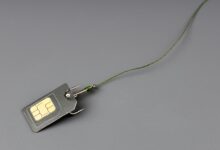CAK new regulations to require registration for use of public Wi-Fi


The Communications Authority of Kenya (CAK) is drafting regulations that will soon require anyone accessing wireless Internet (Wi-Fi) through public hot spots to log in using their personal details. This announcement was made yesterday by the CAK Director General Eng. Francis Wangusi during a press briefing to formally introduce him to the industry after his re-appointment as the CAK Director General.
Wangusi said devices like mobile phones, tablets, computers among others that connect to public WiFi networks will have to be registered with the Kenya Network Information Centre (KENIC) as a way of curbing cybercrime. This will be done by assigning unique IP addresses to the devices for tracking purposes.
This comes after the Director General was cited with the role of fighting cybercrime as one of his key roles in his new term. Under these new regulations, users will be required to provide their telephone numbers and identity card details, which can be used to track them down should they use their devices to commit cybercrime such as fraud or hacking websites.
“We are considering the idea of ensuring the Public Wi-Fi is not accessed without a log in. The logging in of the public domain will require one’s passport number, ID Number or telephone number,” he said
CAK also announced that Kenya Network Information Centre (KENIC) is going to be licenced so that it expands the space of the domain names .ke to make people move away from other domain name spaces.
Mr. Wangusi further clarified that, KENIC will not be able to assign Mobile devices with unique public Internet Protocol (IP) addresses to ease identification of users as it was reported earlier by some dailies.
“The unique number of a device is identified on the internet but we can’t identify who is owning it, if you don’t use the right identification numbers. That’s why we insist on logging in the Public Wi-Fi with personal credentials. This will help us in securing the cyber space, in case of cybercrimes,” he said.
Mr. Wangusi also pointed out that the regulator will work on regulations that will require any companies registered locally to operate in Kenya must have a local domain name.
“There will also be some sub registries that work under KENIC. KENIC will have control over this to ensure that they live by the expectations of our regulations,” he added.
Currently, the registration of companies or businesses is not inter-linked to the assigning of Internet domains. The attorney-general’s office handles business registration while the Kenya Network Information Centre (KENIC) administers the Internet addresses system.
However, once the new regulations are in place Mr. Wangusi said that a new licensing regime for KENIC will require it to collaborate with the registrar of companies and businesses to ensure that those seeking new registrations also acquire the .ke domain.
Kenic had sold 32,508 .ke names as at June 2014. South Africa’s .za leads African countries with more than a million domains. The low uptake of the .ke domain saw KENIC slash the retail prices by 66.7 per cent to Sh1,000 in March in a bid to encourage uptake by more Kenyan firms.
KENIC had previously been charging Sh3,000 for the .ke domain while prices for the .com, .net and .info averaged between Sh500 and Sh2,000.





A good move to end cyber crime in Kenya.